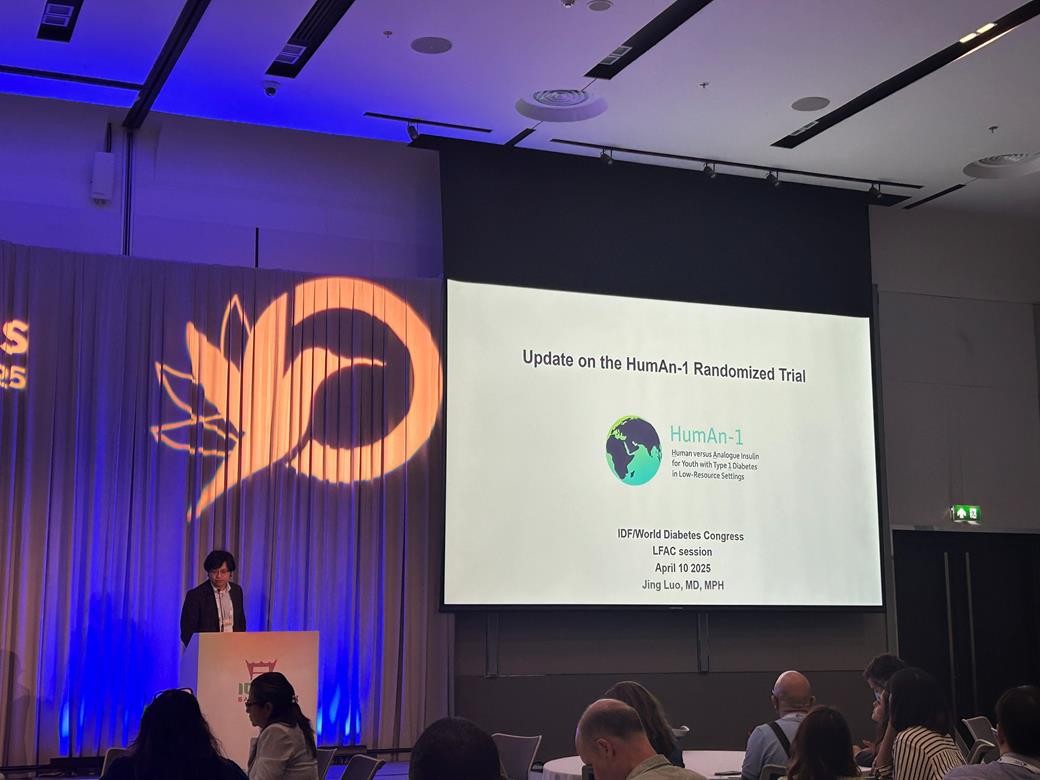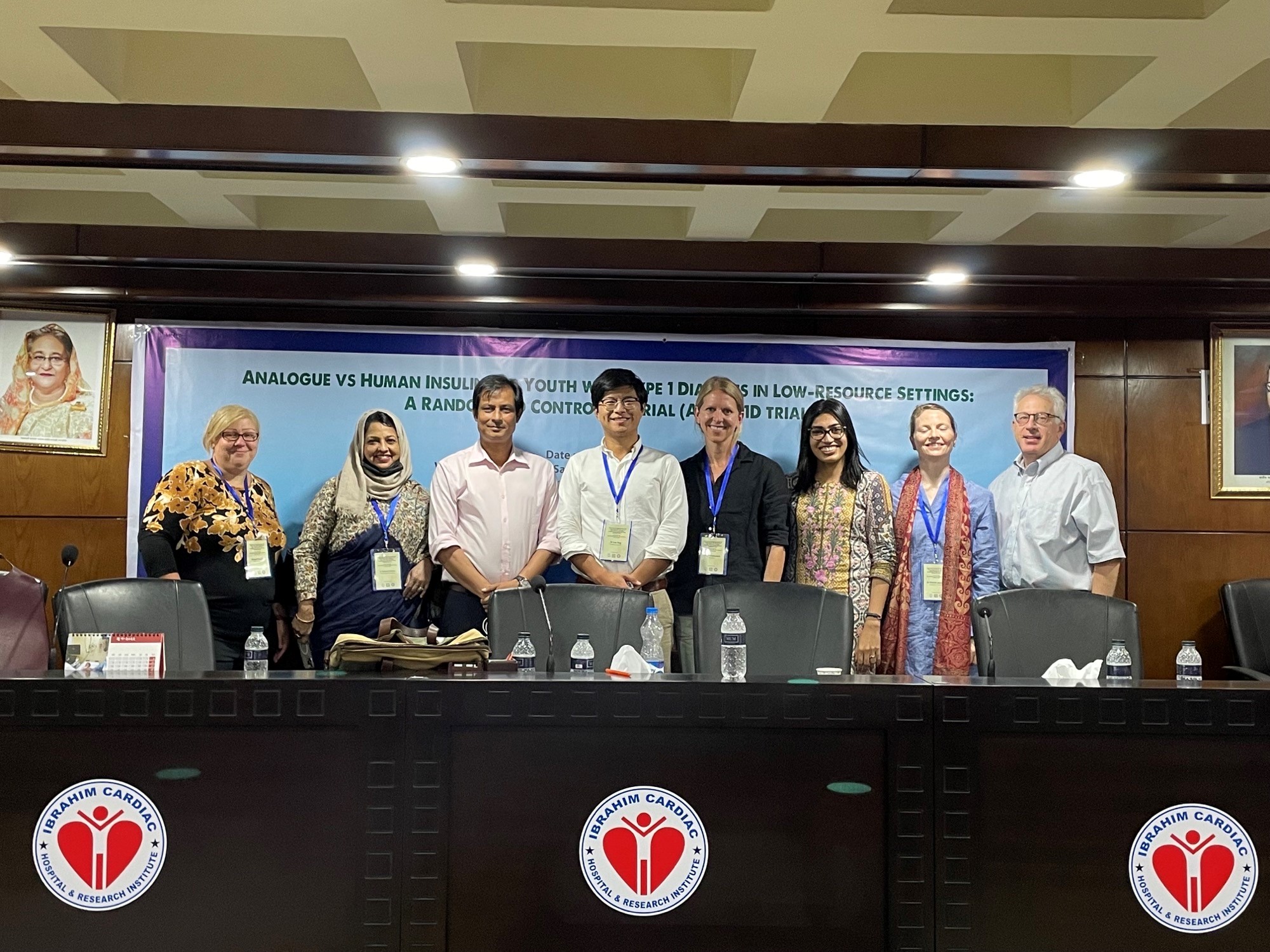
PI: Jing Luo, MD, MPH
Funding Source: The Leona M. and Harry B. Helmsley Charitable Trust
December 2021 - November 2025
Long-acting insulin analogues are the standard of care for type 1 diabetes in high-income countries, offering more stable blood sugar control and improved quality of life. Yet for many children and young adults in low-resource settings, these life-changing medicines remain out of reach due to high cost and limited availability. Applications to include long-acting insulin analogues on the World Health Organization’s Model List of Essential Medicines were rejected in 2017 and 2019, citing insufficient evidence of clinical benefit and poor cost-effectiveness compared with older, less expensive human insulins. Existing studies have largely been conducted in high-income countries and may not reflect the realities faced in lower-resource environments.
To fill this evidence gap, we partnered with Life for a Child, the London School of Hygiene & Tropical Medicine, and the Clinton Health Access Initiative and conducted a randomized controlled trial comparing insulin glargine, a long-acting analogue, with human insulin among children and young adults living with type 1 diabetes in Tanzania and Bangladesh. In addition to clinical outcomes, we conducted mixed-methods research to assess youth and caregiver satisfaction, as well as the cost-effectiveness of expanding access to analogue insulins in these settings.
By generating rigorous trial-based evidence and real-world insights, this global health and pharmacoepidemiology research will guide policy decisions, inform essential medicines lists, and strengthen advocacy for equitable access to insulin. The findings have the potential to transform care for hundreds of thousands of children and young adults with type 1 diabetes worldwide.


